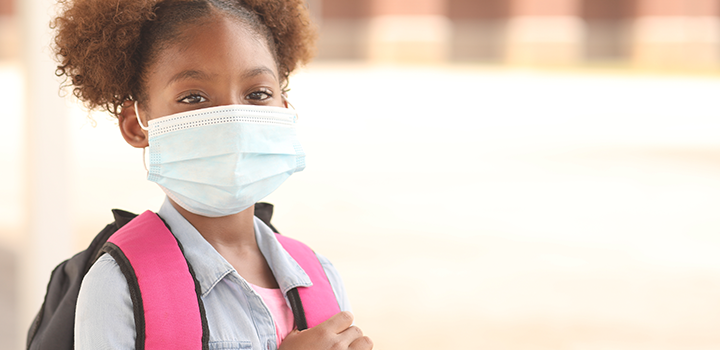
Dr Deepak Patel, paediatrician and Vitality's head clinician, says this depends on the readiness of schools to maintain COVID-19 protocols
It is one of the toughest decisions parents have had to make this century - whether children should attend school or not during the pandemic.
"We have to look to the science for an answer, knowing that the only certainty is uncertainty when it comes to the novel coronavirus that has often baffled virologists and epidemiologists. But, from what we do know of the first wave of the pandemic, reopening schools for in-person learning does not seem to significantly increase community transmission of the virus, and this has been tested around the world," says Dr Patel.
He adds that this outcome depends on schools following COVID-19 safety protocols, which many schools committed to and successfully maintained in 2020. Government will also advise about school readiness and excessive spread of the virus and adjust school opening and closing accordingly.
"We also know that children thrive at schools and, therefore, schools should aim to have students attend school in person, which is how they learn best. With the correct safety measures, we can help keep students, teachers and staff safe," he says.
Mental health impact could outweigh the impact of the virus
"Schools provide more than academics to children. It is essential to learn reading, writing and mathematics, but students also learn social and emotional skills, get exercise and have access to support services at school," says Dr Patel. "Importantly, the science tells us that healthy children appear less likely than adults to have symptoms and severe illness from COVID-19. Early studies also suggest that those under age 10 may be less likely to contract COVID-19 and spread the infection," he adds.
With case numbers high during South Africa's second wave of the pandemic, children with high-risk medical conditions are advised not to attend school.
Additionally, schools still need to plan for exposure, such as isolating students who are ill, doing contact tracing, providing PPE (personal protective equipment) for healthcare workers at school, and doing proper cleaning and disinfecting. Even with all measures in place, school during the COVID-19 pandemic may not feel like normal in the months ahead. Children and parents, as well as teachers, must mind the mental health risks that may result from isolation, changing sleep patterns or excessive screen time when home-schooling. "At the same time, anxiety around in-person schooling should also be managed and accommodated. We are all in this together, and we have to work together to overcome the pandemic, whether we are infected or not, because the world as we know it has certainly changed," says Dr Patel.
Turn your smartphone into a life-saving device
Why are COVID Alert SA app users South Africa's new superheroes? They are building a powerful, life-saving network of anonymous people who are turning their smartphones into shields that help to protect everyone in the country from COVID-19.


